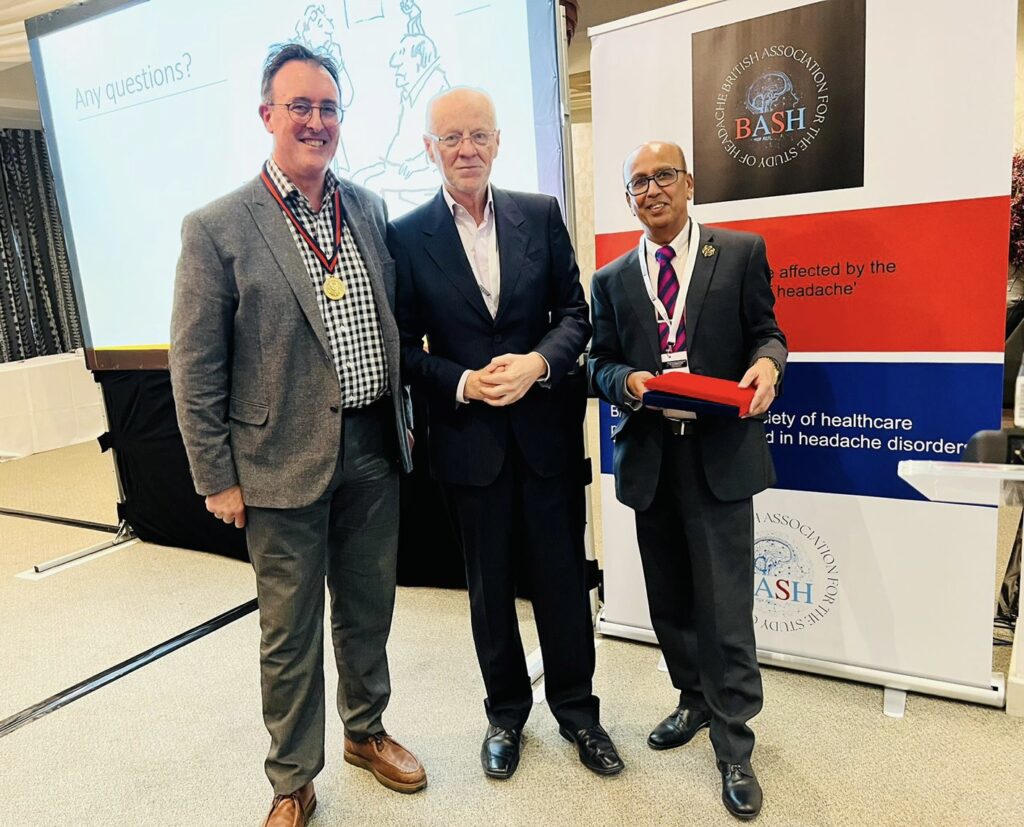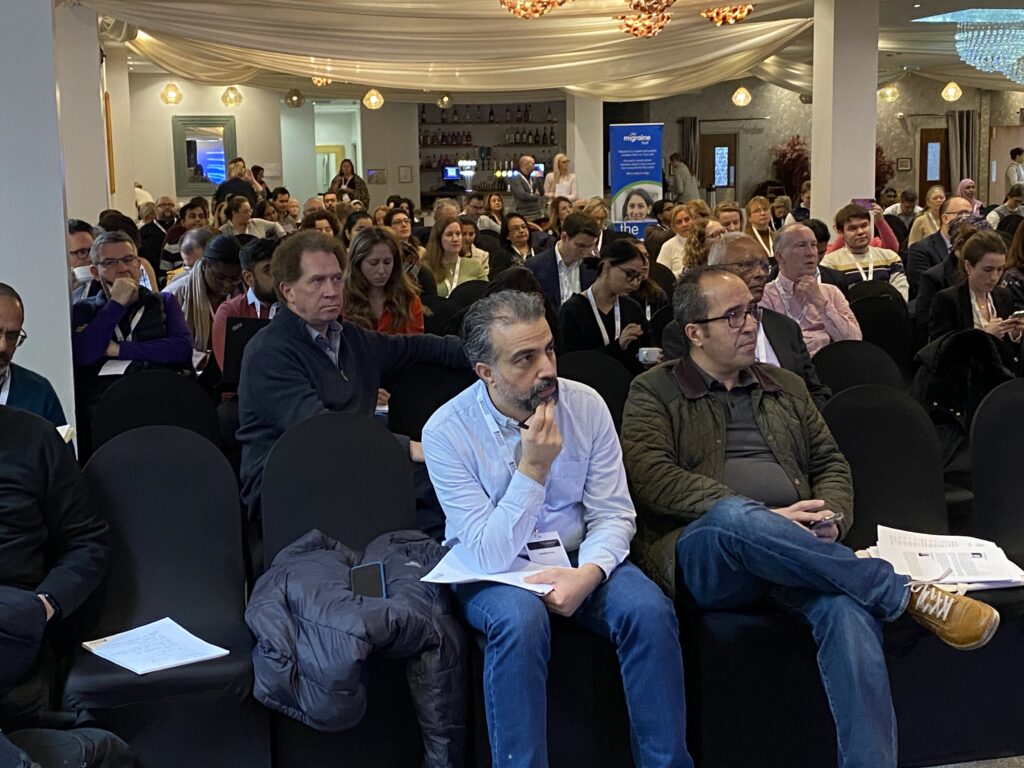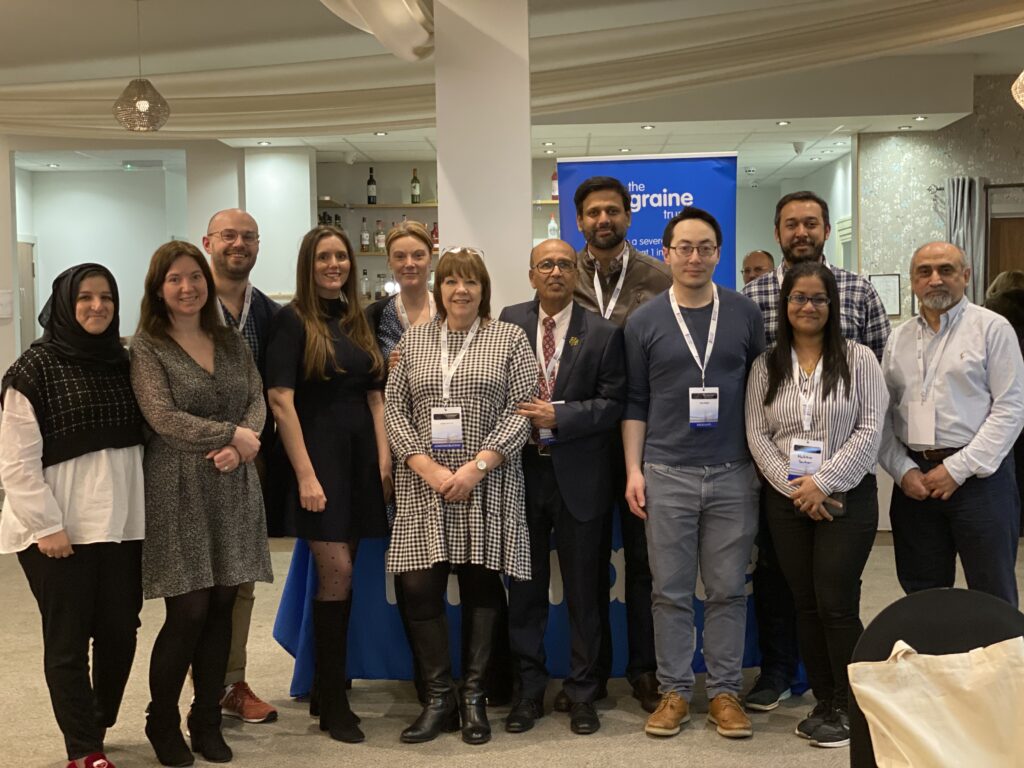The British Association for the Study of Headache (BASH) in collaboration with the International Headache Society (IHS) and the Department of Neurology, Hull University Teaching Hospitals, UK, organised this prestigious educational event on headache disorders in January 2023 at Lazaat hotel and restaurant in Cottingham. The event has been a regular occurrence every other year in Hull since 2005 and is the biggest headache meeting in the UK. The three days of educational lectures for healthcare professionals was followed by a public day in collaboration with the Migraine Trust.
The educational programme covered all aspects of headache disorders from pre-clinical research to evidence based treatment. More than 40 headache specialists from all over the UK delivered lectures attended by 330 delegates including general practitioners, general physicians, neurologists, trainees and allied healthcare professionals. The meeting commenced with a dedicated session for headache specialist nurses and covered evidence based treatments on migraine, injectable treatment and lifestyle support for headache sufferers.

The main event started with the first Vicky Quarshie memorial lecture by the President of the IHS, Professor Cristina Tassorelli from University of Pavia, Italy on medication overuse headaches. Vicky Quarshie was a headache specialist nurse in Hull and a member of the BASH council for many years who died at a young age of 47. Professor Peter Goadsby and Phil Holland spoke about preclinical research on cluster headache and migraine respectively. Dr Farooq Maniyar summarised functional MR imaging in understanding a migraine brain; how it shows activation in the premonitory phase long before the aura and headache phase of migraine attack.
The clinical talks on the first day included a presentation by Dr Shazia Afridi highlighting why it is three times more common in women and how migraines are managed during pregnancy and lactation. The dilemma on who to scan was covered by an entertaining presentation from Dr Giles Elrington. Alex Nesbitt presented up to date research on how sleep and headache disorders are closely linked. The afternoon session was on migraine treatment given by Dr Jane Anderson with special emphasis on managing status migrainosus and Dr Mark Weatherall on preventive treatment options. Professor Manjit Matharu spoke on the trigeminal autonomic Cephalalgia with an excellent summary on how to differentiate between the various subtypes. The difficulties in differentiating trigeminal neuralgia with SUNCT and SUNA and tips on how to manage them was the talk by Dr Giorgio Lambru.

The second day commenced with enlightening lectures on how CSF pressure changes can cause migraine-like headaches. Idiopathic Intracranial Hypertension, common in young fertile females often present with visual symptoms and papilloedema that requires urgent imaging. Professor Alex Sinclair highlighted the latest research and new therapeutic agents in their management. Not every visual symptom is indicative of migraine and Professor Susie Mollan pointed out those that require an ophthalmologist review. Dr Sarah Miller gave an overview on low pressure headaches, how often they are missed and the challenge a neurologist faces in its management as many anaesthetists are still unconvinced on the benefits of a blood patch.
Finding the cause of a secondary headache is as difficult as finding a needle in a haystack, however, they can be life threatening and require careful clinical evaluation in patients presenting with recent onset headaches. Dr Anish Bahra, an advocate of evidence based medicine, discussed some important tips and tricks in identifying and managing them. The morning session ended with a summary of how a general practitioner copes with a 10-minute consultation in primary care. Dr David Kernick, a GPwSI in headache for decades, provided some useful tips to GPs on how to identify and screen a headache presentation. Medication overuse is more common than one thinks and the availability of codeine-based over the counter medication makes it challenging when it comes to patient education, Dr Atwal emphasised. With the increasing elderly population, one sees a growing number of refractory headaches in this age group that have multiple co-morbidities and other prescribed medication on their scripts which makes it difficult to choose a suitable headache prophylaxis. Dr Krishna Dani highlighted these problems with a specific presentation on how migraine and stroke are interlinked, particularly when it comes to aura without headache and increased risk of stroke in those with aura. The session ended with a presentation by Dr Nirmalathan on the new integrated care system (ICS); how this will affect the delivery of headache services in the UK.

The last decades saw the arrival of new migraine-specific therapies targeting the CGRP molecule. Four such biologics are available, all recommended by NICE. Three decades of research by Professor Goadsby and Professor Larsen was behind their development, highlighted Dr Jan Hoffman. He gave an overview on what new therapies are in the pipeline particularly Pituitary Adenyl Cyclase Activating Polypeptides (PACAP). There have been recent advances in some invasive therapeutic options such as occipital nerve stimulation, deep brain stimulation in those with refractory chronic migraine and cluster headaches. Though not widely available and restricted to the very resistant cases, they may have a future prospect in management, said Dr Sarah Miller. The last session covered headaches in children and adolescents with a comprehensive presentation by Dr Ishaq Abu Arafeh. The choice of drugs and new therapeutic options is not straightforward in this age group considering clinical trials are restricted to those above 18.
The conference dinner on the first evening attended by 110 delegates was an opportunity for networking and to gain practical tips from the leading UK experts in headache medicine. As this was the first face to face event following the COVID-19 pandemic, it was welcomed by everyone and the feedback was extremely positive. The meeting offered 15 external CME credits by the Royal College of Physicians, was free to attend and included refreshments and buffet lunch on both days. It was supported through an unrestricted educational grant by Abbvie.